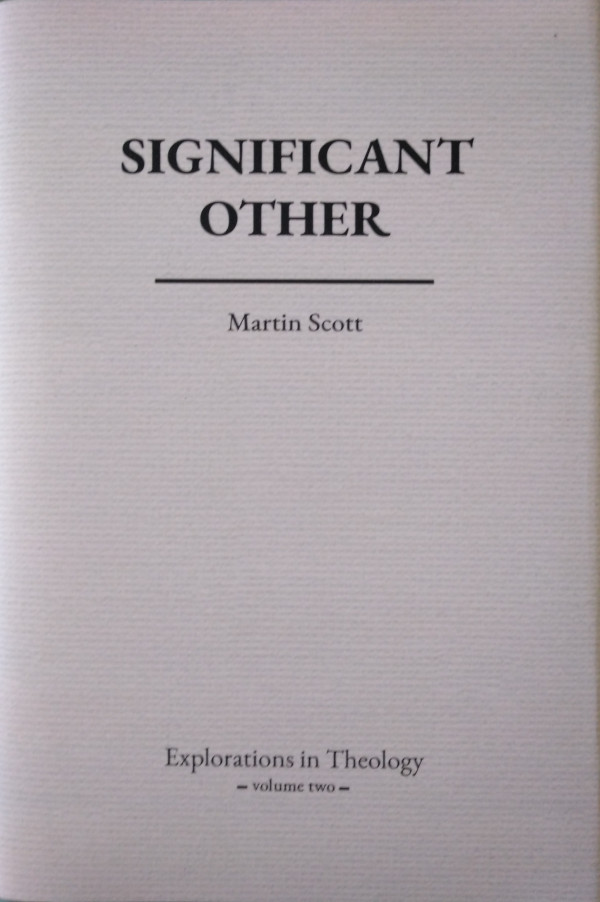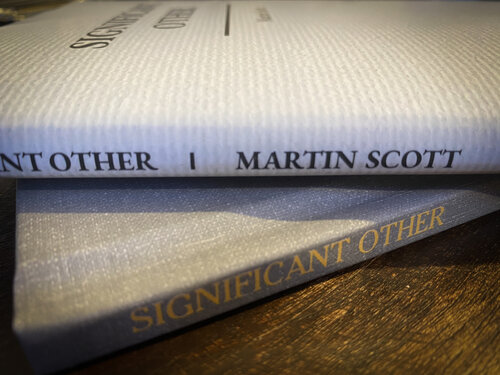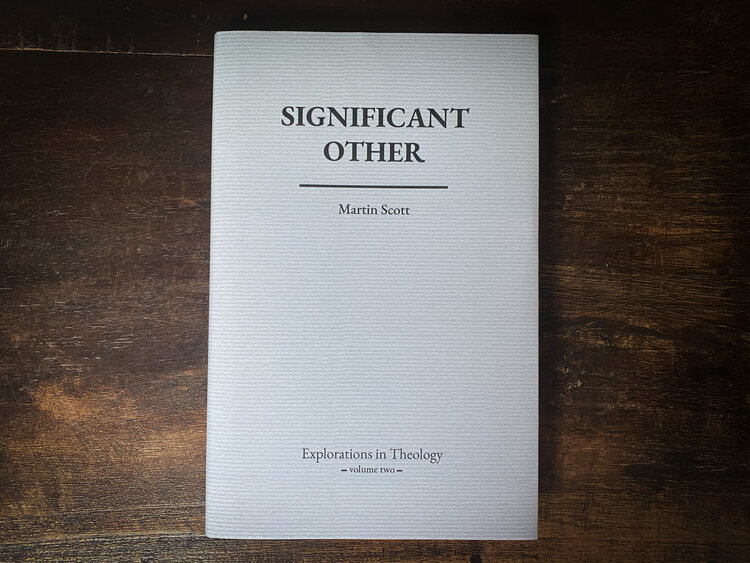Each volume builds on the former and each time Scott presents something so amazing…’ OK that’s the sales blurb, the real blurb is not quite at that level! It is great doing Zoom calls with people and if I were to write the books after the calls there would certainly be some re-writing involved – and I so thought they were inerrant as originally given.
Anyway – volume 2 is out:

Volume 3 is pretty close to ready to go to the final edit and then to the publishers. It is called ‘A Subversive Movement’, building on vol 2 (the political – small ‘p’ – nature of the ekklesia within the Imperial world). I try to move away from the popular ‘seven mountains of influence’ but address such aspects of how would the Gospel help us approach some of the shaping areas of society. In the chapter on Law and order, which I suggest appeals to some Christians as the right / wrong paradigm seems a good fit… However,
- I suggest the more biblical paradigm is that of life / death, and that the right / wrong paradigm originates in the garden of Eden and where it all went wrong;.
- That the very strength of (for example) Islamic sharia law is the desire among Christians to get the right / wrong agenda legislated for. Ah well!!
I have over the past two days added a short discourse on ‘Law-Breaking’, civil disobedience if you like. The books are short discussions so I do not cover every aspect but here is the excerpt (there are footnotes in the document – I include them here in brackets):
Law-breaking?
‘Obey the powers, for they are ordained of God’ (loose translation of Romans 13: 1), is used to hold us all in check, but it is doubtful if that is what Paul intended. The passage cannot be taken in an absolute fashion that will never have any exceptions. (Footnote: One of the early Christian martyrs, Polycarp, makes it clear how he read the passage in Romans. Replying to the Roman proconsul he said, “You I might have considered worthy of a reply, for we have been taught to pay proper respect to rulers and authorities appointed by God, as long as it does us no harm; but as for these, I do not think they are worthy, that I should have to defend myself before them.” Polycarp adds some provisos: whether the authorities are worthy and if it does not do harm to the Christian faith.) The immediate context forbids taking a violent stance against powers, (Footnote: Romans 12: 14-21. It seems false to claim that Jesus and the early Christians were pacifists, if by that we mean they did not resist. Resist they did, but the resistance was of a non-violent resistance. The activist, Gandhi, in resisting the British oppressive rule took inspiration from the practice of Jesus.) but the verses that follow (our chapter 13) are contextually written and contain a measure of irony within them. The command to pay taxes was written in the historical context when there was much debate and public unrest with regard to taxation within the city of Rome. (Footnote: The Roman historian, Tacitus, writes of this unrest as coming to a head in 58AD; Paul’s letter to the Romans is normally dated 56 or 57AD.) This is not to suggest that there is no application of these verses beyond the historical context, but to indicate that the letter is written to a specific situation at a specific time. Then with regard to the seeming endorsement of the use of the ‘sword’ by the civil powers there is quite some irony in what he writes. The emperor at the time, Nero, made the claim that he did not need to use the sword to enforce order, such was the benevolent and developed rule that he exercised. (Footnote: The Roman philosopher Seneca (4BC – 65AD) said of Nero that his gift was of ‘a state unstained by blood, and your prideful boast that in the whole world you have shed not a drop of human blood is the more significant and wonderful because no one ever had the sword put into his hands at an earlier age.’ If only that was the case!) Right in the heart of the chapter Paul writes:
But if you do wrong, be afraid, for rulers do not bear the sword for no reason (Rom. 13: 4).
In that verse there is a little side-swipe at the lie Imperial power tells. Comply and there will be no ‘sword’, but for those who do not comply? (And given that Paul was probably executed under Nero’s rule shows the irony in the claim that rulers only exercise the sword to punish the wrongdoer!) Any reading of Romans 13 needs to be placed alongside a reading of Revelation 13 where the true nature of Imperial rule is exposed, and all kinds of marginalisation takes place for the non-compliant ones.
Shakespeare wrote an oft-repeated line:
The lady doth protest too much, methinks (from the play ‘Hamlet’).
I suggest we might coin a new phrase that ‘we, the privileged do not protest enough’. There is cautious wisdom within those chapters in Romans dealing with life at the centre of the Empire. Advice such as pay what you owe (13: 6,7) or to live at peace with all, as far as is possible (12: 18) makes good sense in the context. We might paraphrase it as, ‘Choose how you protest, for in your context any protest will have significant repercussions.’ We see the same practical advice regarding marriage in the Corinthian context that Paul gave ‘because of the present crisis’ (1 Cor. 7: 25). Those early Christians living in the seemingly all-powerful world of the Roman empire were indeed living in a time of extreme pressure, and they needed to think carefully about how they responded.
The same practical advice is relevant today, but for those of us whose lives are not threatened by the majority of our actions, we need to consider how best to use that luxury. To protest against persecution, climate crisis and the oppression of voices that challenge the status quo in certain parts of our globe could well be life-threatening. That is not a reason in itself not to protest in those situations, but any response needs to be taken soberly and wisely. However, in other parts of the world (mine included) the luxury of protesting without the consequence of one’s life being threatened means we would have to consider reasons why we would not add our voice and physical presence to those who are protesting and calling for an end to injustice
Such protest might be seen as ‘law-breaking’ but the push back against injustice requires a higher allegiance than that of complying. One might suggest that the resurrection of Jesus from the dead was not exactly compliant with Roman or Jewish custom and law! It was indeed a political act against all dominant political power.



